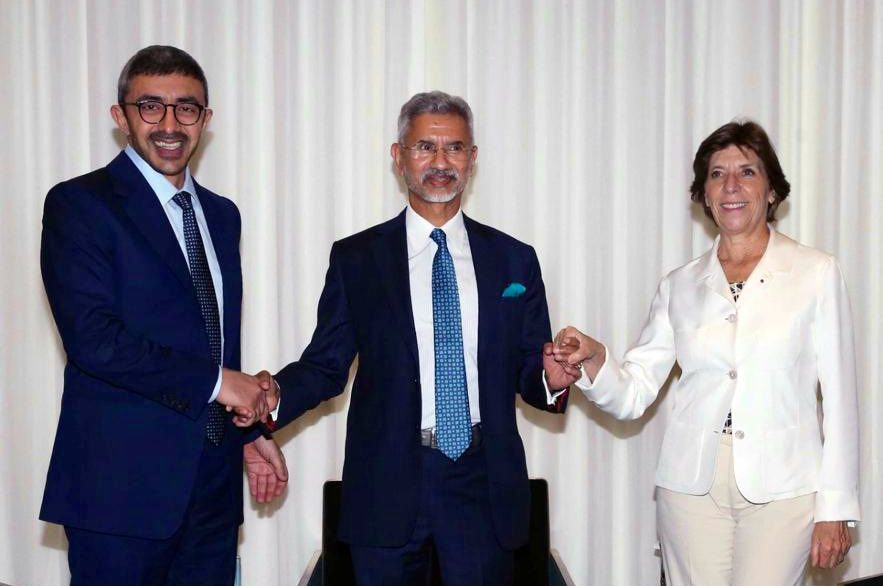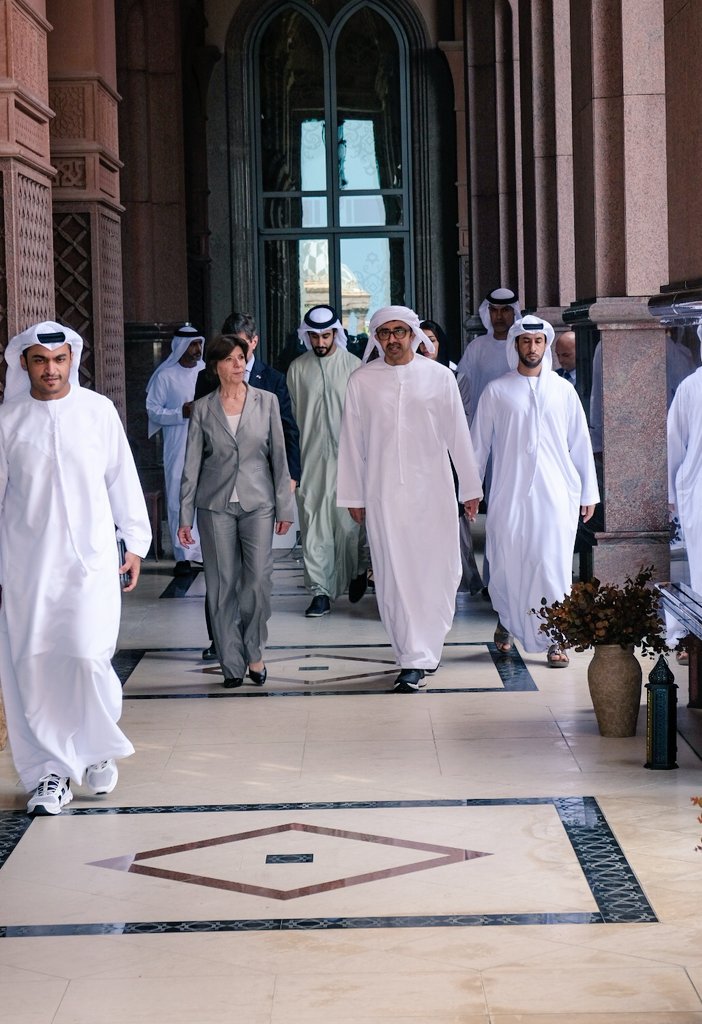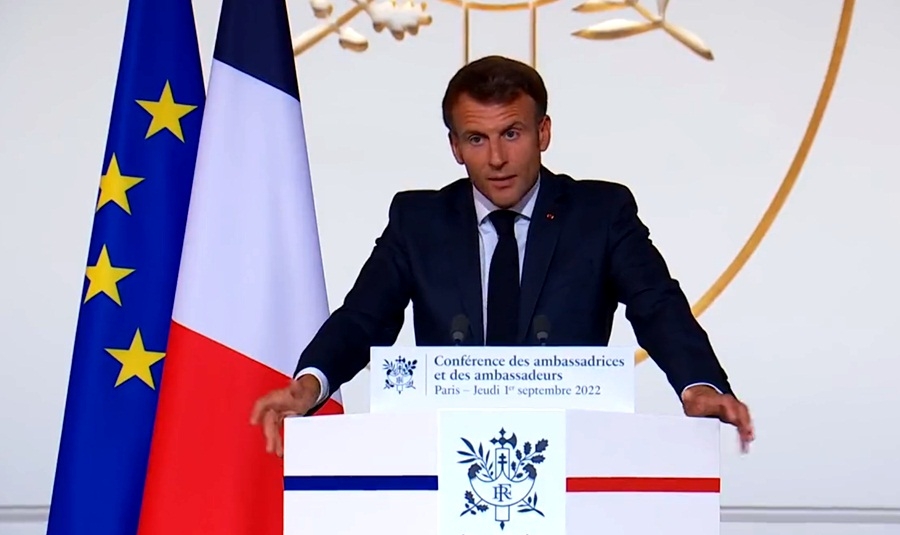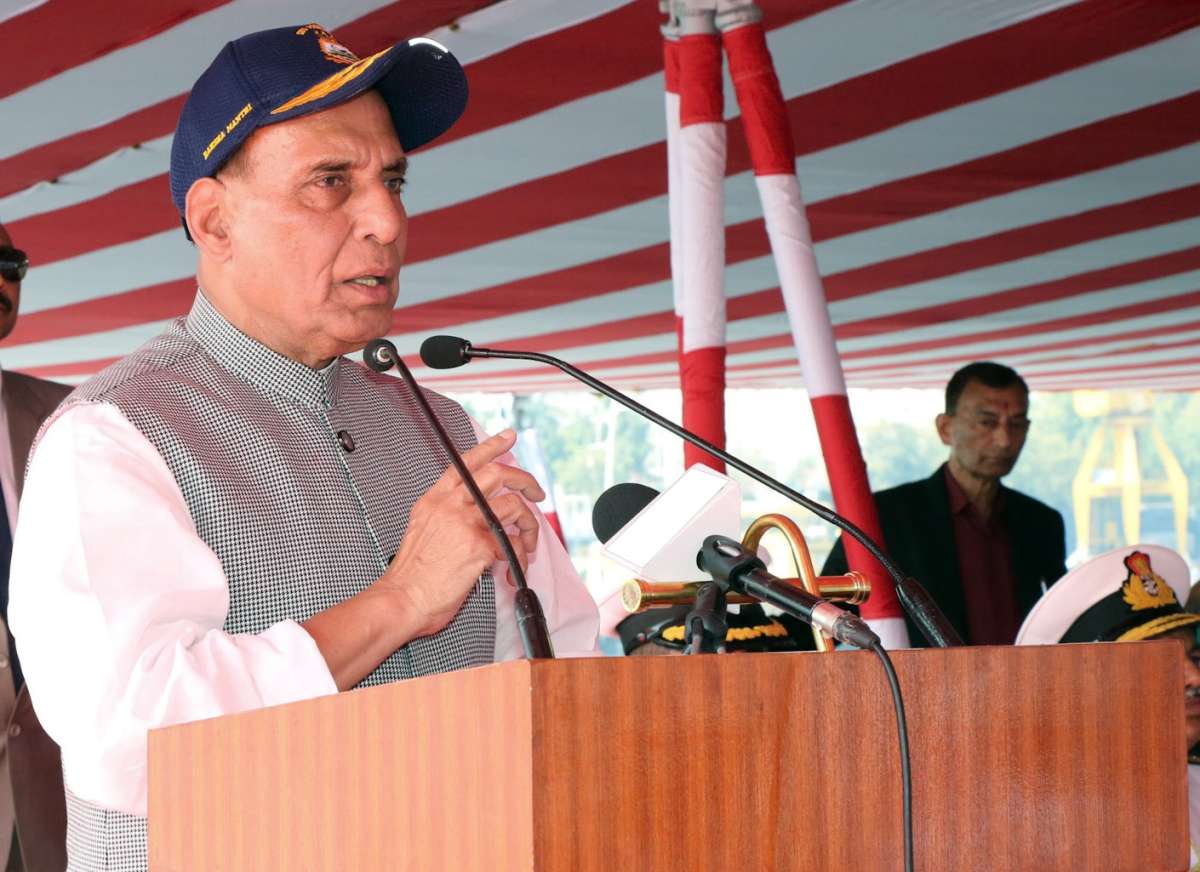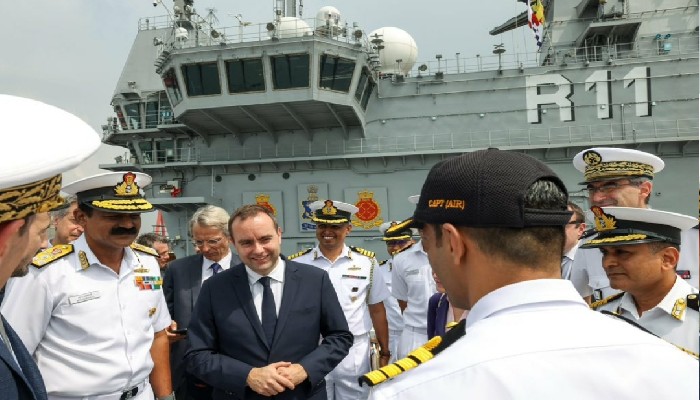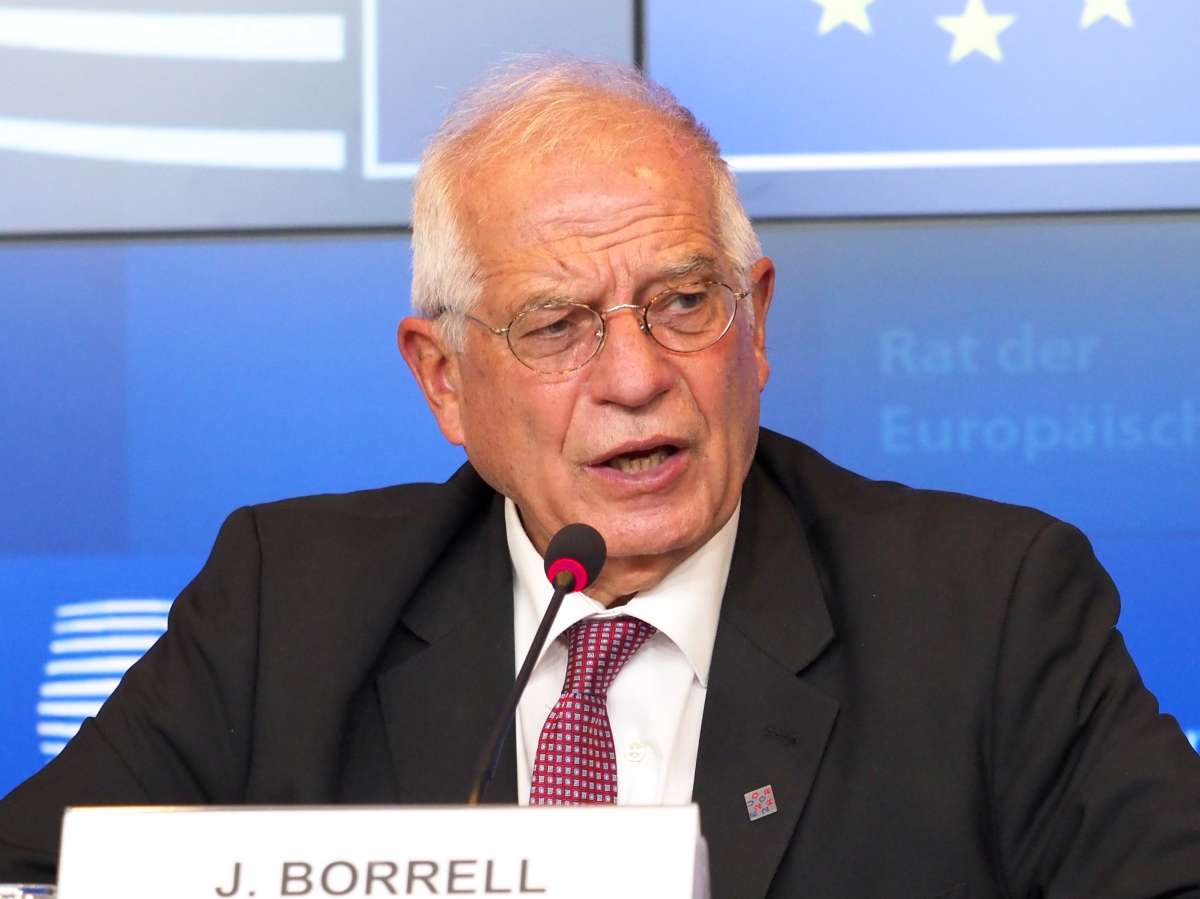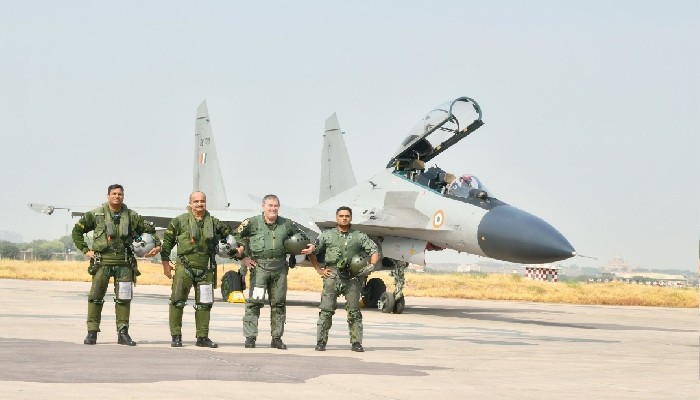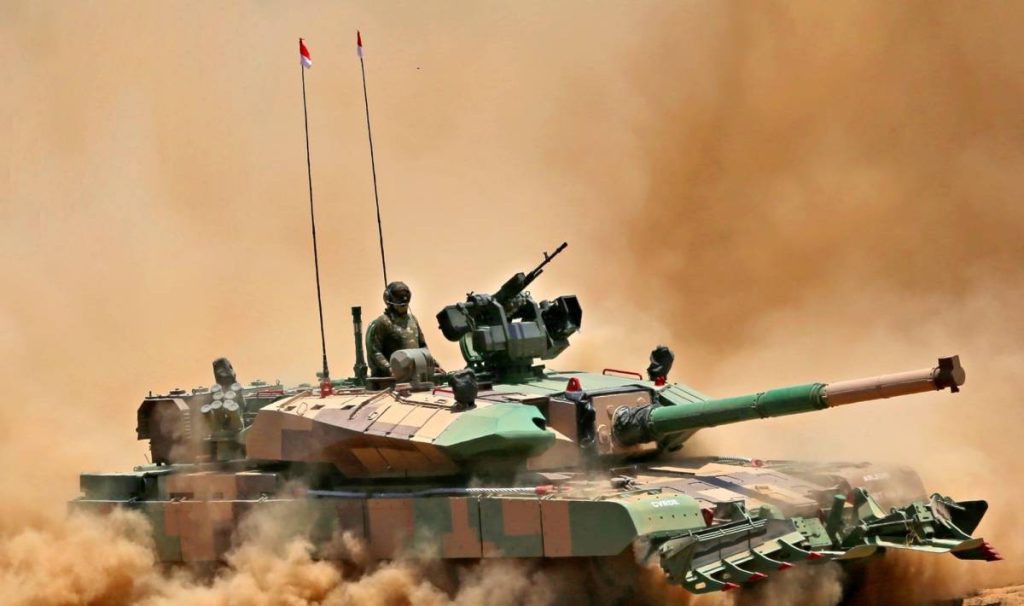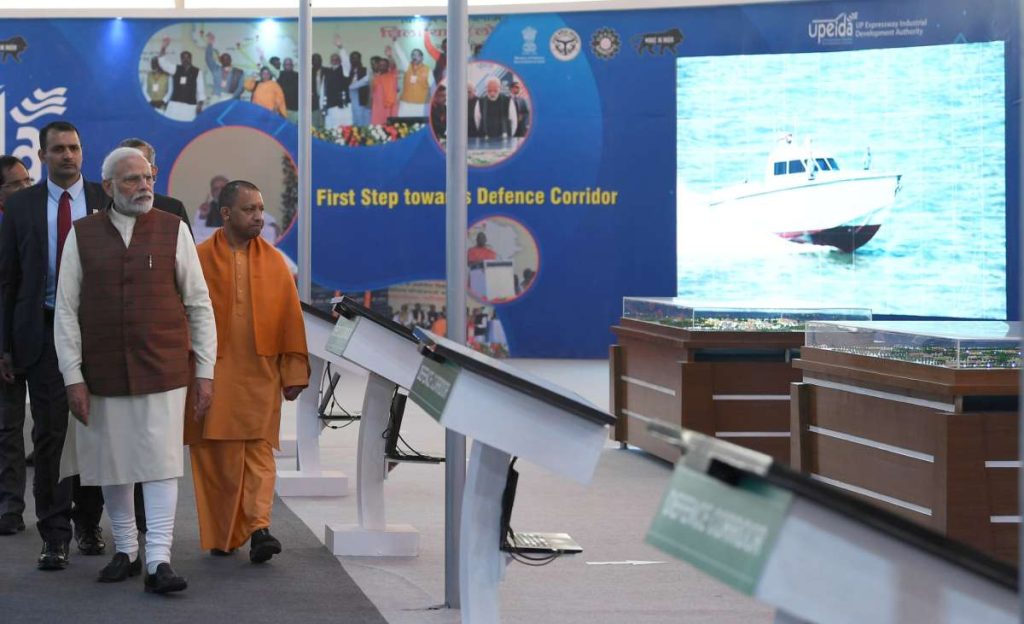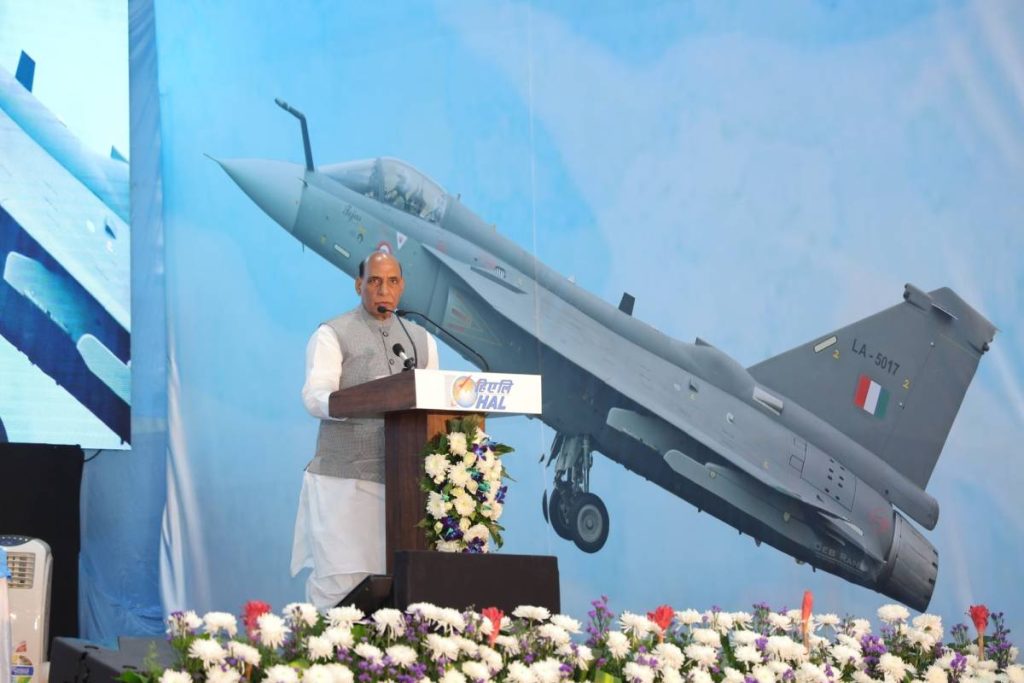On the occasion, Uttar Pradesh Chief Minister Yogi Adityanath assured the UK delegation of safety of their investments and also…reports Asian Lite News
Britain’s Defence Procurement Minister Alex Chalk said his government would be exploring investment opportunities in the medical, defence and aerospace sectors of Uttar Pradesh.
Chalk was speaking during a partner country session held on the last day of the Global Investors Summit in Lucknow.
Addressing the audience, Chalk said, “Uttar Pradesh is playing a large scale role in meeting India’s defense needs under the Make in India campaign and our contribution in this role will be in many areas including investment as well as manufacturing of strategic and tactical weaponry. With this, Uttar Pradesh will be able to meet India’s defence needs and establish itself globally in terms of exports.”
Chalk added that an “able” Uttar Pradesh was important “not only for the Asia-Pacific region, but also for the whole world” and it is for this reason that the world was looking forward to “witness the realisation of the vision of Uttar Pradesh’s golden future”.
“Let comprehensive strategic partnership between UP and the UK be engines of each other’s growth,” he said.
“To demonstrate our ambition and commitment, I am joined by more than 30 British business firms that are partnering with their Indian counterparts to deepen and intensify our relationship.” The UK Minister also said that these firms were signing MoUs and committing an investment of 165 million pounds in Uttar Pradesh and generating jobs in the state.
On the occasion, Uttar Pradesh Chief Minister Yogi Adityanath assured the UK delegation of safety of their investments and also.
Adityanath said that relations between India and the UK were based on a strong and historic background and Prime Minister Narendra Modi has taken the bilateral relations of the two countries to a new height. “Now, several investors associated with the UK are not only participating in GIS-2023 but also the UK’s defence procurement minister is here with his delegation to take forward these possibilities in UP,” CM said.
The chief minister said UP has its own land bank which can pave the way for opportunities of industrial investment in 25 different sectors. He added that with the policies related to these 25 sectors, the Uttar Pradesh government guarantees every investor a safe investment in the state. “The state government was committed to ensure that these investments prove fruitful for the investors as well as for youths and people of UP.”
During the session, six UK firms signed MoUs with the UP government for investment in the state.
ALSO READ-‘BBC Chair made’errors of judgement in Boris loan affair’


